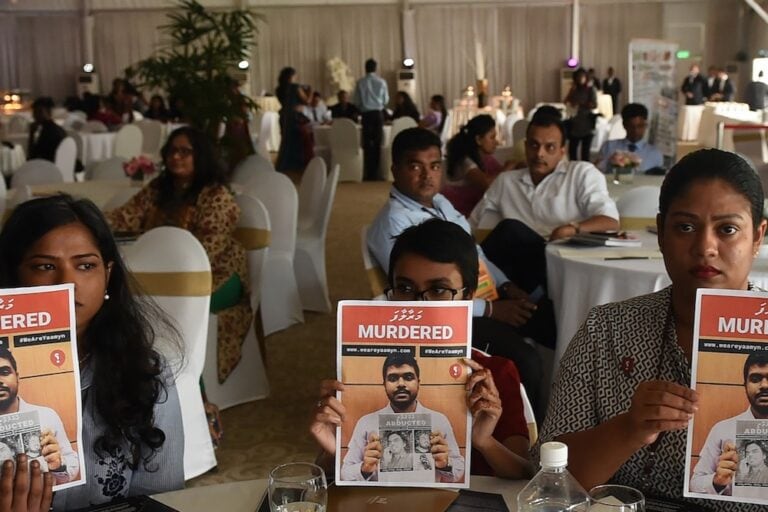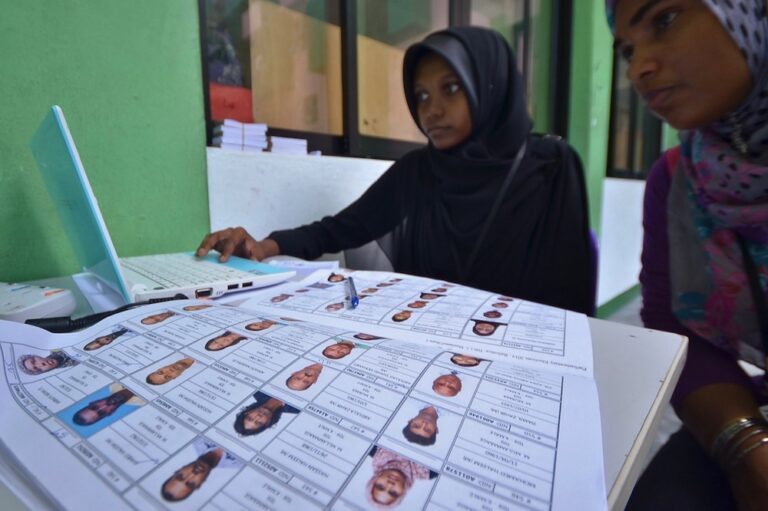(RSF/IFEX) – On 15 April 2003, RSF expressed concern over the Maldives government’s recent cancellation of 22 publication licences and its amendment of the press law, allowing for the withdrawal of the licence of any publication that fails to publish at least three successive issues. RSF said the changes to the law increase the government’s […]
(RSF/IFEX) – On 15 April 2003, RSF expressed concern over the Maldives government’s recent cancellation of 22 publication licences and its amendment of the press law, allowing for the withdrawal of the licence of any publication that fails to publish at least three successive issues.
RSF said the changes to the law increase the government’s ability to stifle criticism. The organisation called on President Maumoon Abdul Gayoom to reverse the decision and relax the law. RSF also urged him to release Mohamed Zaki, Ibrahim Luthfee, Fatimath Nisreen and Ahmad Didi, who publish the online newsletter “Sandhaanu” and have been imprisoned since July 2002 (see IFEX alert of 21 January 2003).
On 4 March, the Information, Arts and Culture Ministry announced that 22 licences had been cancelled because of the publications’ irregular appearance. Most of the affected publications no longer appear or do so at irregular intervals. They include the daily “Monday Times” and the magazines “Rankolhu”, “Faiymini”, “Koveli” and “Kokaa”. Certain journalists who preferred to remain anonymous denounced what they termed a “black day” for the country’s media, and said the moves amount to government intimidation.
The ministry also announced amendments to the press law, including Article 29, allowing for the cancellation of a publication’s licence if it fails to publish at least three issues at regular intervals. Publishers will be subject to a six-month waiting period before being able to apply for a new licence for another publication.
Three privately-owned daily newspapers and a dozen magazines are published in the Maldives. A tougher government line towards the press is expected in the run-up to general elections in 2004.


